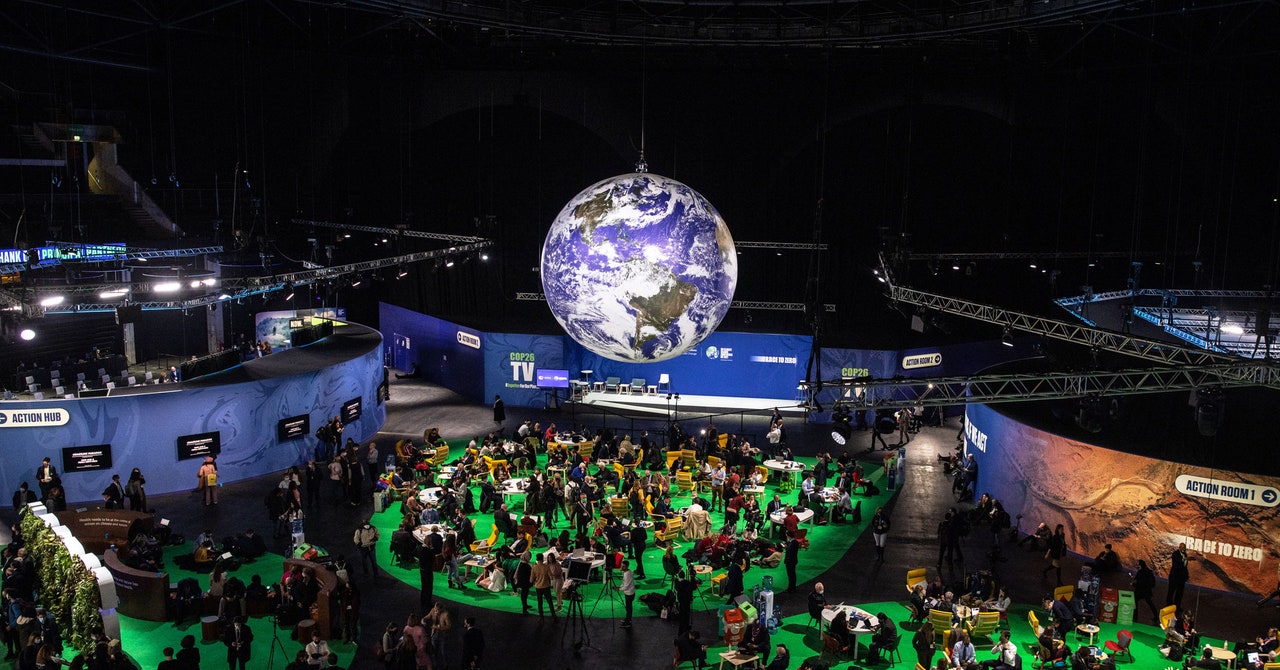
So far this year, there has also been a decided absence of civil society presence in these negotiating rooms. “We can’t participate; we don’t have tickets to participate,” says Tasneem Essop, executive director of Climate Action Network (CAN) International, a major umbrella group of nonprofits that works to secure a progressive outcome at the talks. “We can’t have access to the place.”
Unlike journalists, who are not allowed in the negotiating rooms, CAN delegates usually have access to the talks by default. Here they can observe negotiations and are occasionally invited to speak. But this year, in the name of Covid-19 safety, nonprofits arrived to find COP organizers had introduced a ticketing system, with only two tickets given to the whole of CAN International. This means only two people from CAN, an organization that represents hundreds of smaller ones, were able to enter and observe six sessions running in parallel. In short, CAN International is “not able to follow the negotiations,” says Essop.
Harjeet Singh, senior adviser at CAN International and a veteran of the climate talks, says civil society presence in the negotiating rooms is imperative to increasing pressure on countries to progress in the talks. “If there are some parties who are not behaving correctly, or doing any kind of arm twisting, then we get that information and relay that out. That then exposes what’s going on on the inside; it puts pressure and things fall in line.”
At COP26, observers have not had access to any meaningful area of COP for the first two days, just as all of the negotiations are starting, says Sébastien Duyck, a senior attorney at the Center for International Environmental Law (CIEL). This is typically the period when observers have the most access, he says, because civil society observers are often asked to leave the room later in the process when negotiations heat up.
“COP26 is starting out extremely badly,” he says. “From my past experience with the last 12 COPs, this is unprecedented. For a lot of developing countries, delegates who came from very difficult situations, because of Covid, the risks of bringing the virus back, the need to quarantine and all of this, it is ridiculous that now they have to stay in their overpriced hotels.”
Delegates were given some access to negotiating rooms via a virtual platform, but technical issues have prevented many from accessing even this. On Tuesday, the UN Climate Change secretariat sent an email to delegates apologizing for “the inconveniences associated with accessing the venue of COP26, both physically and virtually.” The emailed statement added that the first few days of COP26 had been a “learning process, with participants and staff getting used to the pandemic-related logistical measures and circumstances.”
But many civil society attendees say the problems have not just come from essential Covid-19 measures. “I’m just sad about this,” says Essop. “Getting all of us here, especially those who are coming from the Global South, and treating everybody with this kind of disrespect where you discover you actually don’t have access, just means that they think people are dispensable and irrelevant.”
More Great WIRED Stories


